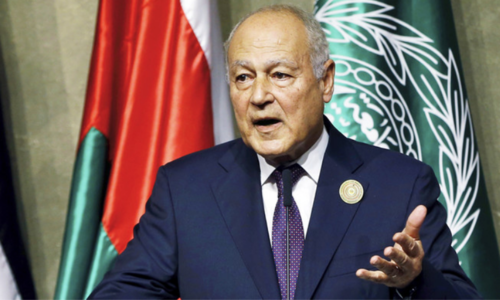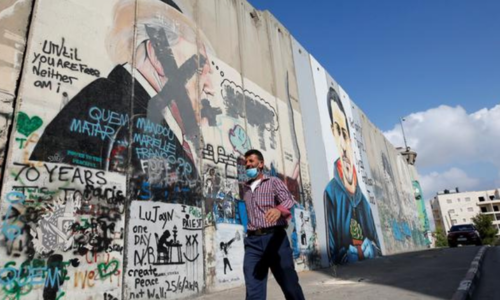US President Joe Biden and Israeli Prime Minister Benjamin Netanyahu laid any tensions to rest on Wednesday by finally holding their first phone call since the change of administration in Washington.
Netanyahu was one of the last foreign leaders to get a call from Biden, who took office on January 20, despite Israel's special relationship with the United States.
Both sides stressed their close ties during the call, which Biden told reporters was a “good conversation”.
The White House said Biden registered “support” for a series of agreements brokered by his predecessor Donald Trump on normalising relations between Israel and Arab and Muslim countries.
Biden “affirmed his personal history of steadfast commitment to Israel's security and conveyed his intent to strengthen all aspects of the US-Israel partnership, including our strong defence cooperation,” a White House statement said.
In a statement, Netanyahu's media adviser called the talk “very warm and friendly” and lasting about an hour.
“The two leaders noted their longstanding personal connection” and agreed to strengthen the countries' alliance, the statement added.
The Israeli premier and US president “discussed the future advancement of the peace accords, the Iranian threat and regional challenges, and agreed to continue their dialogue”.
Biden made a point
Placing Netanyahu far down on the list was widely interpreted as Biden's way of signalling a reset in US-Mideast relations following the Trump era.
The Republican often boasted of being what he called the most “pro-Israel” president in US history. He closely followed Netanyahu's priorities, including moving the US embassy from Tel Aviv to the disputed city of Jerusalem — a move seen as provocative by many other countries.
Biden has also made a point of cooling the close personal relations established by Trump with Saudi Arabia's de facto ruler Crown Prince Mohammed bin Salman. The Democrat has yet to call the Saudis and says when he does it will be to King Salman himself.
The perception of a cold shoulder irked Netanyahu's Likud Party.
Danny Danon, head of Likud's global wing, recently tweeted a list of Biden's conversations with leaders and asked, “Might it now be time to call the leader of Israel, the closest ally of the US?” And Nikki Haley, Trump's former ambassador to the United Nations, accused the Biden administration of “snubbing” Israel.
On Tuesday, White House Press Secretary Jen Psaki insisted that Netanyahu wasn't being ignored — but indicated that he was not exactly on the front burner.
“Let me confirm for you that his first call with a leader in the region will be Prime Minister [Benjamin] Netanyahu,” she said. “I don't have an exact date for you but it is soon.”
Iran disagreement persists
Despite the back-to-normal nature of the phone call, Biden's Mideast agenda is already taking a sharp turn from the one that made Trump so popular with Netanyahu.
Crucially, Trump withdrew from a 2015 deal between Iran and world powers to keep Tehran's nuclear industry under close monitoring in exchange for relaxing crippling sanctions on the country.
This pleased Israel, which insists that Iran was cheating on the deal and working towards a nuclear weapon — something the Iranians denied.
Biden has come into office declaring that he wants to return to the deal in some form, calling Trump's “maximum pressure” campaign on Iran a failure.
In Wednesday's phone call, “Biden also commended Netanyahu on his leadership in the fight against the coronavirus,” the Israeli premier's media adviser added.
Israel has surged ahead in its vaccination drive against Covid-19.
The country of about nine million people on Tuesday delivered a shot of the Pfizer/BioNTech vaccine to its four millionth citizen.
More than 2.6m of them have already received the second jab recommended for maximum protection.













































